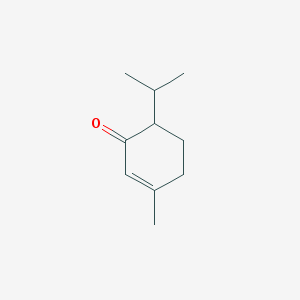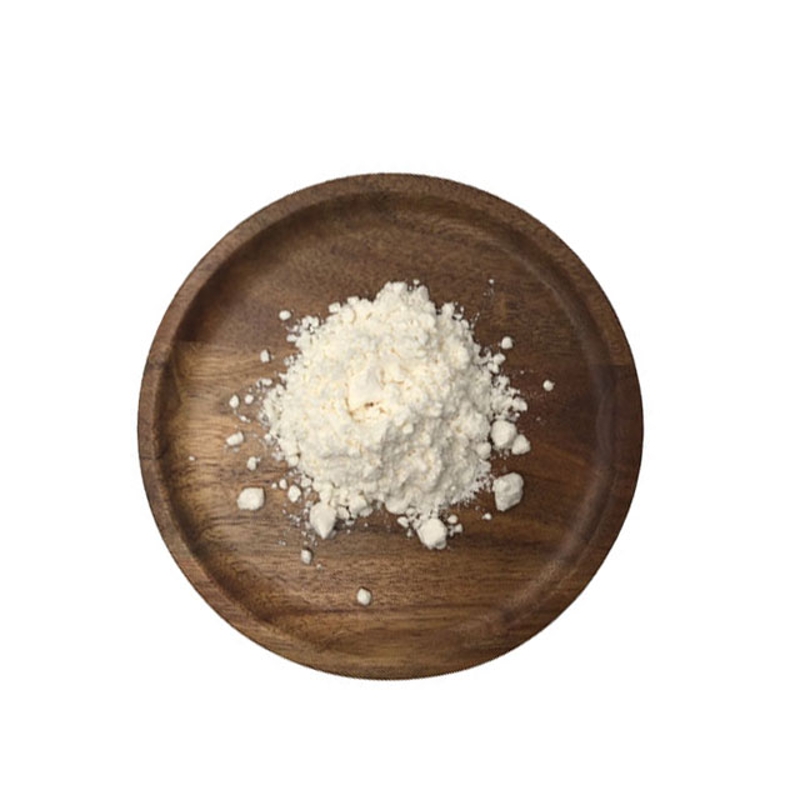-
Categories
-
Pharmaceutical Intermediates
-
Active Pharmaceutical Ingredients
-
Food Additives
- Industrial Coatings
- Agrochemicals
- Dyes and Pigments
- Surfactant
- Flavors and Fragrances
- Chemical Reagents
- Catalyst and Auxiliary
- Natural Products
- Inorganic Chemistry
-
Organic Chemistry
-
Biochemical Engineering
- Analytical Chemistry
- Cosmetic Ingredient
-
Pharmaceutical Intermediates
Promotion
ECHEMI Mall
Wholesale
Weekly Price
Exhibition
News
-
Trade Service
foodmate.
net/tag_2463.
html" class="zdbq" title="U.
S.
related food information" target="_blank">The 2021 annual meeting of the foodmate.
net/tag_2463.
html" class="zdbq" title="U.
S.
related food information" target="_blank">American Society of foodmate.
net/tag_4556.
html" class="zdbq" title="Investigate relevant food information" target="_blank">Investigative Pathology was held from April 27th to 30th.
In a new study published in the annual meeting, from pharmacology, physiology and Marshall University foodmate.
net/tag_399.
html" class="zdbq" title="Toxicology related food information" target="_blank">Toxicology Assistant Professor, Department Piyali Dasgupta foodmate.
net/tag_4793.
html" class="zdbq" title="Experiment-related food information" target="_blank">experimental study room we found that foodmate.
net/tag_1058.
html" class="zdbq" title="Chili related food information" target="_blank">chili non-irritating synthetic analogue of the hormone can make small-cell lung cancer cells More sensitive to treatment.
net/tag_2463.
html" class="zdbq" title="U.
S.
related food information" target="_blank">The 2021 annual meeting of the foodmate.
net/tag_2463.
html" class="zdbq" title="U.
S.
related food information" target="_blank">American Society of foodmate.
net/tag_4556.
html" class="zdbq" title="Investigate relevant food information" target="_blank">Investigative Pathology was held from April 27th to 30th.
In a new study published in the annual meeting, from pharmacology, physiology and Marshall University foodmate.
net/tag_399.
html" class="zdbq" title="Toxicology related food information" target="_blank">Toxicology Assistant Professor, Department Piyali Dasgupta foodmate.
net/tag_4793.
html" class="zdbq" title="Experiment-related food information" target="_blank">experimental study room we found that foodmate.
net/tag_1058.
html" class="zdbq" title="Chili related food information" target="_blank">chili non-irritating synthetic analogue of the hormone can make small-cell lung cancer cells More sensitive to treatment.
Small cell lung cancer is an aggressive cancer that originates in the bronchial mucosa or glands and is highly related to smoking.
The disease progresses rapidly, the natural course is short, and the survival rate is very low.
The disease progresses rapidly, the natural course is short, and the survival rate is very low.
Cisplatin-based combination therapy is usually the standard treatment for patients with small cell lung cancer.
Initially, patients show an excellent response to cisplatin, but usually within a year, they will relapse due to resistance to cisplatin.
Treatment options for patients with relapsed small cell lung cancer are very limited.
Initially, patients show an excellent response to cisplatin, but usually within a year, they will relapse due to resistance to cisplatin.
Treatment options for patients with relapsed small cell lung cancer are very limited.
As the only standard chemotherapeutic drug approved by the FDA, the objective effective rate of irinotecan is only 3%, which can be said to have little or no survival benefit.
Therefore, drugs that increase the response to irinotecan treatment will help treat human lung cancer that is resistant to cisplatin.
Therefore, drugs that increase the response to irinotecan treatment will help treat human lung cancer that is resistant to cisplatin.
The natural compound capsaicin has been shown to have a good anti-cancer effect in several types of human cancers.
However, as a clinically feasible drug, the adverse effects of capsaicin, such as gastric irritation, stomach cramps and burning sensation, limit its application.
This has led to extensive research focusing on the identification and rational design of non-irritating capsaicin analogs, which can retain the biological activity of capsaicin and eliminate irritating side effects.
Arvanil is a non-irritating synthetic capsaicin analogue.
However, as a clinically feasible drug, the adverse effects of capsaicin, such as gastric irritation, stomach cramps and burning sensation, limit its application.
This has led to extensive research focusing on the identification and rational design of non-irritating capsaicin analogs, which can retain the biological activity of capsaicin and eliminate irritating side effects.
Arvanil is a non-irritating synthetic capsaicin analogue.
The laboratory of Piyali Dasgupta has long been committed to the research on the anti-cancer activity of capsaicin and its analogues.
In this study, they studied the effect of Arvanil in combination with irinotecan on cisplatin-resistant lung cancer cells.
When the researchers exposed two human lung cancer cell lines resistant to cisplatin to low concentrations of Arvanil, they did not observe any inhibitory activity.
Later, when they treated these cells with different concentrations of SN38 (the active ingredient of irinotecan), they found that the combination with Arvanil greatly enhanced the ability of SN38 to slow the growth of cancer cells.
Statistical analysis shows that the interaction between Arvanil and irinotecan is essentially a synergistic effect, which has a greater effect than the combination of capsaicin/irinotecan.
In two types of lung cancer cells, the pro-apoptotic activity of Arvanil/irinotecan is mediated by the increase in intracellular calcium levels, involving the calpain pathway.
Later, when they treated these cells with different concentrations of SN38 (the active ingredient of irinotecan), they found that the combination with Arvanil greatly enhanced the ability of SN38 to slow the growth of cancer cells.
Statistical analysis shows that the interaction between Arvanil and irinotecan is essentially a synergistic effect, which has a greater effect than the combination of capsaicin/irinotecan.
In two types of lung cancer cells, the pro-apoptotic activity of Arvanil/irinotecan is mediated by the increase in intracellular calcium levels, involving the calpain pathway.
Doctoral student Jamie Friedman in Dasgupta laboratory said: "Arvanil enhances the anti-cancer activity of irinotecan in human small cell lung cancer cells.
Therefore, a combination therapy based on Arvanil/irinotecan may be useful for patients with relapsed small cell lung cancer.
We hope this work will pave the way for new therapies for relapsed cisplatin-resistant small cell lung cancer.
"
Therefore, a combination therapy based on Arvanil/irinotecan may be useful for patients with relapsed small cell lung cancer.
We hope this work will pave the way for new therapies for relapsed cisplatin-resistant small cell lung cancer.
"
Reference materials:
foodmate.
net/tag_2463.
html" class="zdbq" title="U.
S.
related food information" target="_blank">The 2021 annual meeting of the foodmate.
net/tag_2463.
html" class="zdbq" title="U.
S.
related food information" target="_blank">American Society of foodmate.
net/tag_4556.
html" class="zdbq" title="Investigate relevant food information" target="_blank">Investigative Pathology was held from April 27th to 30th.
In a new study published in the annual meeting, from pharmacology, physiology and Marshall University foodmate.
net/tag_399.
html" class="zdbq" title="Toxicology related food information" target="_blank">Toxicology Assistant Professor, Department Piyali Dasgupta foodmate.
net/tag_4793.
html" class="zdbq" title="Experiment-related food information" target="_blank">experimental study room we found that foodmate.
net/tag_1058.
html" class="zdbq" title="Chili related food information" target="_blank">chili non-irritating synthetic analogue of the hormone can make small-cell lung cancer cells More sensitive to treatment.
foodmate. net/tag_2463.
html" class="zdbq" title="U.
S.
related food information" target="_blank">The 2021 annual meeting of the foodmate.
net/tag_2463.
html" class="zdbq" title="U.
S.
related food information" target="_blank">American Society of foodmate.
net/tag_4556.
html" class="zdbq" title="Investigate relevant food information" target="_blank">Investigative Pathology was held from April 27th to 30th.
In a new study published in the annual meeting, from pharmacology, physiology and Marshall University foodmate.
net/tag_399.
html" class="zdbq" title="Toxicology related food information" target="_blank">Toxicology Assistant Professor, Department Piyali Dasgupta foodmate.
net/tag_4793.
html" class="zdbq" title="Experiment-related food information" target="_blank">experimental study room we found that foodmate.
net/tag_1058.
html" class="zdbq" title="Chili related food information" target="_blank">chili non-irritating synthetic analogue of the hormone can make small-cell lung cancer cells More sensitive to treatment.
net/tag_2463.
html" class="zdbq" title="U.
S.
related food information" target="_blank">American foodmate.
net/tag_4556.
html" class="zdbq" title="Investigate relevant food information" target="_blank">investigative foodmate.
net/tag_399.
html" class="zdbq" title="Toxicology related food information" target="_blank">toxicology foodmate.
net/tag_4793.
html" class="zdbq" title="Experiment-related food information" target="_blank">experiment foodmate.
net/tag_1058.
html" class="zdbq" title="Chili related food information" target="_blank">pepper
Small cell lung cancer is an aggressive cancer that originates in the bronchial mucosa or glands and is highly related to smoking.
The disease progresses rapidly, the natural course is short, and the survival rate is very low.
The disease progresses rapidly, the natural course is short, and the survival rate is very low.
Cisplatin-based combination therapy is usually the standard treatment for patients with small cell lung cancer.
Initially, patients show an excellent response to cisplatin, but usually within a year, they will relapse due to resistance to cisplatin.
Treatment options for patients with relapsed small cell lung cancer are very limited.
Initially, patients show an excellent response to cisplatin, but usually within a year, they will relapse due to resistance to cisplatin.
Treatment options for patients with relapsed small cell lung cancer are very limited.
As the only standard chemotherapeutic drug approved by the FDA, the objective effective rate of irinotecan is only 3%, which can be said to have little or no survival benefit.
Therefore, drugs that increase the response to irinotecan treatment will help treat human lung cancer that is resistant to cisplatin.
Therefore, drugs that increase the response to irinotecan treatment will help treat human lung cancer that is resistant to cisplatin.
The natural compound capsaicin has been shown to have a good anti-cancer effect in several types of human cancers.
However, as a clinically feasible drug, the adverse effects of capsaicin, such as gastric irritation, stomach cramps and burning sensation, limit its application.
This has led to extensive research focusing on the identification and rational design of non-irritating capsaicin analogs, which can retain the biological activity of capsaicin and eliminate irritating side effects.
Arvanil is a non-irritating synthetic capsaicin analogue.
However, as a clinically feasible drug, the adverse effects of capsaicin, such as gastric irritation, stomach cramps and burning sensation, limit its application.
This has led to extensive research focusing on the identification and rational design of non-irritating capsaicin analogs, which can retain the biological activity of capsaicin and eliminate irritating side effects.
Arvanil is a non-irritating synthetic capsaicin analogue.
The laboratory of Piyali Dasgupta has long been committed to the research on the anti-cancer activity of capsaicin and its analogues.
In this study, they studied the effect of Arvanil in combination with irinotecan on cisplatin-resistant lung cancer cells.
When the researchers exposed two human lung cancer cell lines resistant to cisplatin to low concentrations of Arvanil, they did not observe any inhibitory activity.
Later, when they treated these cells with different concentrations of SN38 (the active ingredient of irinotecan), they found that the combination with Arvanil greatly enhanced the ability of SN38 to slow the growth of cancer cells.
Statistical analysis shows that the interaction between Arvanil and irinotecan is essentially a synergistic effect, which has a greater effect than the combination of capsaicin/irinotecan.
In two types of lung cancer cells, the pro-apoptotic activity of Arvanil/irinotecan is mediated by the increase in intracellular calcium levels, involving the calpain pathway.
Later, when they treated these cells with different concentrations of SN38 (the active ingredient of irinotecan), they found that the combination with Arvanil greatly enhanced the ability of SN38 to slow the growth of cancer cells.
Statistical analysis shows that the interaction between Arvanil and irinotecan is essentially a synergistic effect, which has a greater effect than the combination of capsaicin/irinotecan.
In two types of lung cancer cells, the pro-apoptotic activity of Arvanil/irinotecan is mediated by the increase in intracellular calcium levels, involving the calpain pathway.
Doctoral student Jamie Friedman in Dasgupta laboratory said: "Arvanil enhances the anti-cancer activity of irinotecan in human small cell lung cancer cells.
Therefore, a combination therapy based on Arvanil/irinotecan may be useful for patients with relapsed small cell lung cancer.
We hope this work will pave the way for new therapies for relapsed cisplatin-resistant small cell lung cancer.
"
Therefore, a combination therapy based on Arvanil/irinotecan may be useful for patients with relapsed small cell lung cancer.
We hope this work will pave the way for new therapies for relapsed cisplatin-resistant small cell lung cancer.
"
Reference materials:







